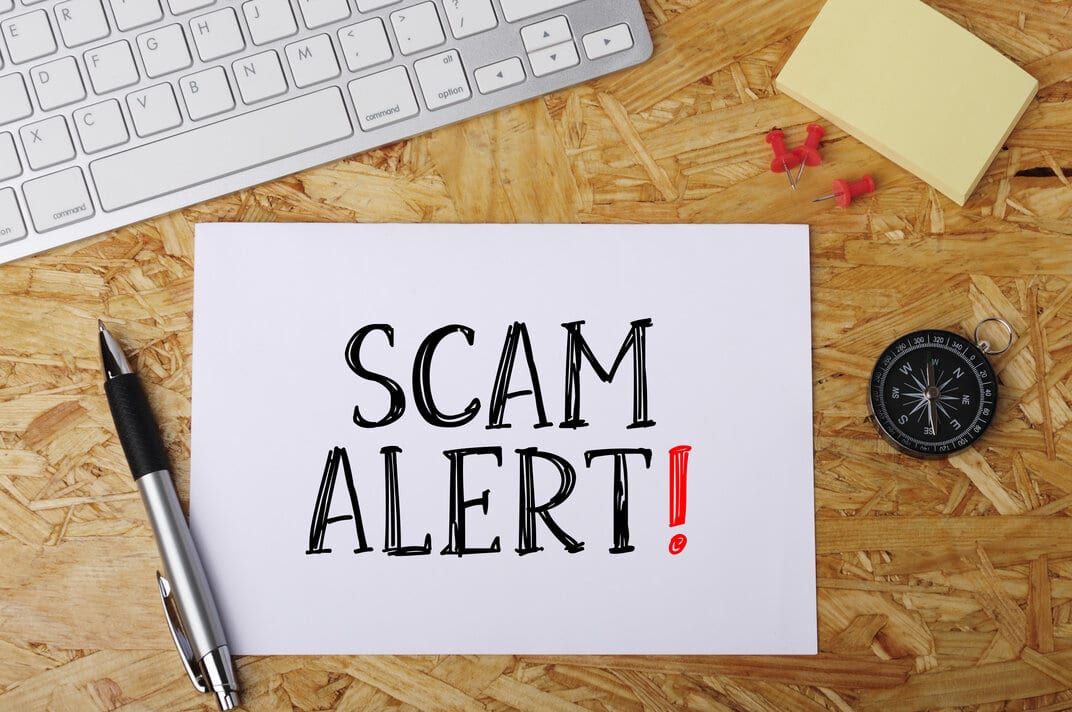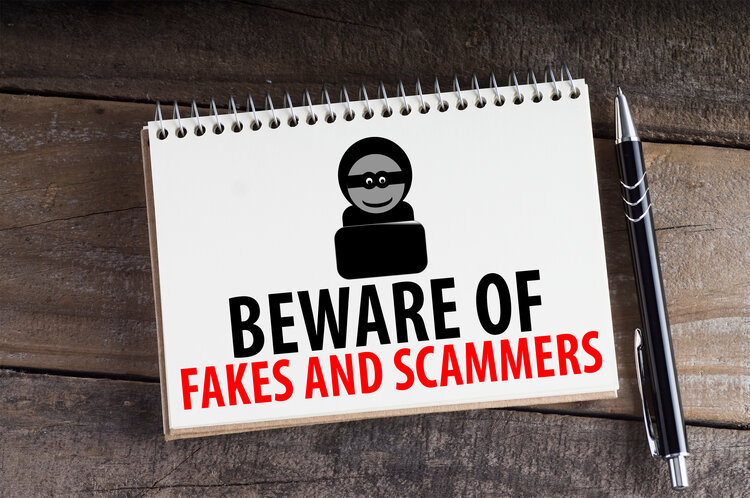Jasmine Birtles
Your money-making expert. Financial journalist, TV and radio personality.


It’s an unfortunate truth that, whenever there’s a crisis, certain people will try to make money out of it. And when it comes to COVID-19, it’s sadly no different. The worst thing is that scammers are more tech-savvy than ever – which means they’re taking advantage of the anxiety we’re all feeling in the middle of a pandemic. We’re all so distracted, it’s easier than ever to accidentally fall victim to one of the latest COVID-19 scams.
In fact, 37% of UK adults believe that they have been targeted by a scam or fraud since lockdown started on 23rd March, according to research by online investment company AJ Bell. The figure rises to 45% for those aged 55-64 – suggesting that scammers are targeting those who have recently gained access to their pension savings.
Here, we’ll think about the latest COVID-19 and pension-related scams, and consider what you can do to protect yourself against them.

There are so many scams out there it’s almost hard to keep track right now. Here are the main ones to look out for:
One recent COVID-19 scam that has been circulating on Facebook involves a person claiming to be from NHS Test and Trace calling their intended victim, and informing them that they have been in close contact with someone who has tested positive for COVID-19.
This scam is dangerous because this is exactly what the staff working for NHS Test and Trace are actually doing. The scammers go on, though, to try and get their targets to share their bank details in order that a test can be sent to them through the post. The exchange might move into the scammer telling you that there is a fee to send the test out, and that you need to read out the long number on your card so that they can take payment. Of course, this is a scam – and they’ll definitely take out more than the £50 they’re saying they will.
The important thing to remember is that, if the caller genuinely is from Test and Trace, they will never ask for your card details or demand payment. Instead, they will ask you to isolate and may also go into more details about the people that you have been in contact with, so that they can contact them too. You need to be on your guard with this one: it’s exactly the kind of thing that will catch lots of people out.
Citizens Advice has flagged a scam that sees face masks, PPE and medical equipment advertised at a higher than usual cost. A scam dreamt up for COVID times, this equipment is likely to be non-existent or very poor quality. It’s a scam that plays on the shortages that we saw earlier this year. Don’t fall for it, however desperate you might feel.
Most supermarkets and chemists now sell disposable face masks, gloves, and sanitiser at reasonable prices. If you need specialist medical equipment, such as a face shield, make sure you go via a legitimate medical supplies company (look for one with plenty of third-party reviews on Google or Trustpilot).
Another scam highlighted by Citizens Advice, and also flagged by insurance company Aviva, which summaries the scam as follows: “There are firms that call consumers pretending to be their life insurance or income protection provider or adviser… The caller will then usually offer the consumer ‘the same cover for a lower premium’. However, in reality, the cover will not be the same as the cover already in place. It may be unsuitable for the consumer’s needs and may not even be available to the consumer.”

Pension freedoms mean you have a lot of power over where your money goes. You can move it from pension to pension, whenever you like – and scammers are taking full advantage of this.
Anyone offering a free pension review that forces you to transfer money isn’t legitimate. Use an independent financial adviser, a service like the Government’s Pension Wise, or a well-known pension specialist like My Pension Expert.
You should never feel pressured into moving your money, and definitely shouldn’t be asked to move your pension into an overseas account.
Some services, like My Pension Expert, WILL offer a free pension review. So, how can you tell someone is a legitimate adviser? You must have contacted them yourself. Anyone who gets in touch out of the blue – whether by letter, phone, or email – asking to review your pension for free is likely to be a scammer.
You usually can’t unlock your pension before the age of 55. Aviva says it bluntly: “If a scammer offers to ‘help’ you to access your pension by transferring money into a questionable pension scheme, they’ll usually expect a large slice of your hard-earned money in return and may even steal the whole lot. HMRC will also penalise you for accessing your pension early by levying unauthorised payment fees of up to 40% of the funds you withdraw.” Eek.
You could also lose your pension pot entirely if you move your money into a scammer’s account – meaning you’ll have nothing for retirement.
So, how will you know if you’re being targeted by a scammer? And what should you look out for in order to protect yourself?
There are a few things that might suggest that you’re being scammed online. Here are some of the key ones:
There is more advice from the Money Advice Service and Citizens Advice online.
You can also see what you should do if you think you’ve fallen victim to a scammer here.
The Government has come under fire recently as it could do more to tackle scams and fraud, such as:
Have you fallen victim to one of the latest COVID-19 scams? If you’re comfortable sharing your story, head on over to our forums.
Want to know more about potential scams and how to avoid them? Read these next!
